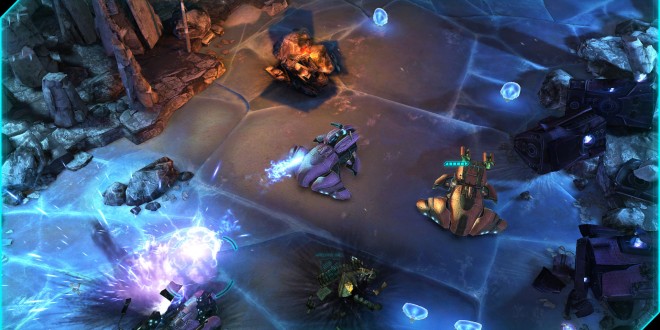Publisher Microsoft and developer 343 Industries have just announced a brand-new title in the massively-popular Halo franchise. Before you start jumping with excitement – no, it’s not ‘Halo 6’. Instead, this latest entry is called Halo Spartan Strike. If the name sounds kind of familiar, that is because Spartan Strike is a spiritual successor to last year’s Halo: Spartan Assault. As such, Halo Spartan Strike is a top-down twin-stick shooter; its story is set during the events of Halo 2, apparently featuring lots of enhancements over Spartan Assault. 343’s latest launches on December 14th on all Windows platforms – desktop (via Steam), Surface tablets, and Windows Phone. Fortunately, one purchase will get you access to all versions. Halo Spartan Strike will set you back $5.99, and it will also include achievements, five weekly challenges, in addition to leader-boards. Meanwhile, micro-transactions have been completely eliminated.
If you’re curious about its “predecessor”, know that Spartan Assault is set between the events of Halo 3 and Halo 4. Players control the human soldiers Edward Davis and Sarah Palmer as they fight the alien Covenant. The game launched with 25 single-player missions, with additional content released later. Halo: Spartan Assault is a twin-stick shooter game where players view gameplay from an overhead top-down perspective. On touchscreen mobile devices, players control the character through virtual joysticks – the left stick controls movement and the right stick controls the direction of the character’s fire. On Windows 8 PCs, the method of input is a keyboard and mouse, while Xbox 360 and Xbox One players use a physical gamepad. Halo: Spartan Assault’s gameplay earns players experience points, achievements, and emblems for a Halo 4 Spartan career.
Spartan Assault has received mixed reviews upon release, the game having a weighted aggregate rating of 70/100 on Metacritic. Multiple reviewers praised the game for its authentic Halo look and feel, while the micro-transaction features of said title were generally negatively received.
 Load the Game Video Games, Reviews, Game News, Game Reviews & Game Video Trailers
Load the Game Video Games, Reviews, Game News, Game Reviews & Game Video Trailers



